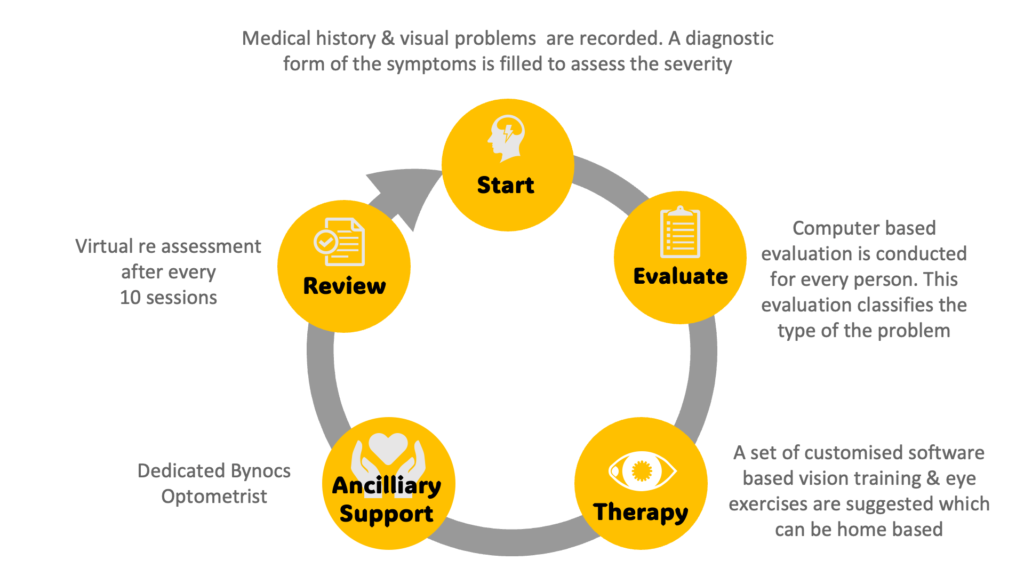FASTER CLARITY IN VISION THAT BRINGS BACK THE JOYS OF LIFE!
Discover NeoAdaptor To Accelerate Neuroadaptation
Multifocal intraocular lenses are widely implanted in cataract surgeries to seek spectacle independence. But multifocal intraocular lenses may lead to vision problems that include glare and halos, further developing into dysphotopsia, a neurosensory symptom, making patients unhappy and dissatisfied.
Bynocs aims to treat vision problems caused due to neurosensory/neuro vestibular disorders with an adept neuro-ophthalmology treatment, helping neuroadaptation. The neuroadaptation plays a vital role in the adaptation of multifocal IOL. Neuroadaptation is the neural changes induced by the new type of visual experience. It is an important process in the successful outcome of cataract surgery implanted with multifocal intraocular lenses. When a multifocal lens is implanted, the patient’s brain is subjected to multiple images focussed on by the eye. There is intraocular rivalry due to neurodevelopmental delay, and the brain has to choose one of the many images. Sometimes, the brain is confused in processing inputs, thus manifesting vision problems. This is because the newer neurocircuitry channels have to be established, requiring time. The time taken for neuroadaptation varies from person to person.
Statistically, 10% of the patients may never neuro adapt, and they are unhappy with their surgical outcome. During neuroadaptation, different brain parts are involved in processing inputs. For example, the frontoparietal lobe, the cingulate gyrus, and the caudate nucleus areas of the brain are involved in learning, visual attention, cognitive control, and adaptive behavior.
Bynocs has developed a software program, which is part of neuro-ophthalmology treatment, based on the theory of Neuroplasticity, i.e., the brain is neuroplastic and adapts to or responds to neuro storm treatment via training. The software program is designed in interactive games based on the dichoptic principle, i.e., different eyes responding to different stimuli. The activities result in removing suppression and improving contrast sensitivity along with perceptual training for a faster neuroadaptation. We have also designed programs to detect and treat phorias and vergence anomalies. Treating these undetected anomalies enhances the experience of patients implanted with multifocal IOLs.
For undergoing the Bynocs treatment program, the clinic or the patient should have the following
Laptop or Desktop
with a minimum size of 11 inches
Google Chrome
as a web browser
A ruler or
a scale
for measurement and calibration
Anaglyph glasses
Zoom call
Working knowledge to set up & call
Amblyopia (Lazy Eye) Treatment
Bynocs Process


